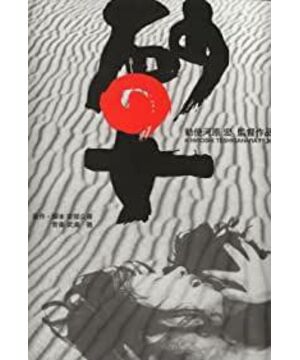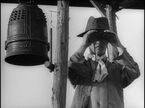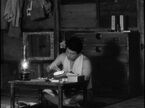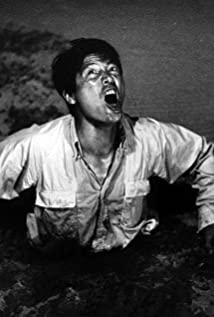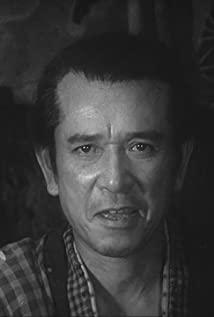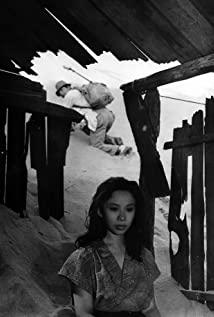The text is transferred from: "The Lady of Sand" Character and Theme Analysis Jiang Haiyan's Film Literary Invasion and Deletion
The Japanese movie "Sand Girl" (premiered in 1964) is an adaptation of the novel "Sand Girl" written by Kobo Abe, a well-known Japanese existentialist writer. The original novel has been translated into more than 20 languages and won the Yomiuri Literature Award in Japan and the Best Foreign Literature Award in France. It is a long masterpiece that shocked the world. The film of the same name also won the Special Jury Award at the 17th Cannes International Film Festival in France and the Best Foreign Language Film Award at the 37th Academy Awards. It is one of the top 100 Japanese films of the 20th century. It has been almost half a century since this work, but looking at it now, the consistent soundtrack full of tension and suspense, the unique and tense beauty of the heroine, and the possibility that the sand and stones around the sand cave may flow down little by little are at any time. The bizarre scene of the collapse is still a shocking beauty.
1. Introduction to the film
A male teacher who went to the sand dunes to collect insect specimens was lured by local villagers into a sand cave like an ant's nest, where he stayed overnight with a widow. The bottom of this hell-like cave is a dilapidated hut eroded by sand and stone, and the ground can only be accessed by a ladder. The villagers removed the ladder the next morning. It turned out that in order to prevent the dilapidated house at the bottom of the cave from being swallowed up by sand and stones, the widow needed a strong man to help. In this way, the man was forced to live in the wonderful cave with the widow, and his daily job was to clean up the falling sand. At the same time, he also began to strive to return to the ground and return to the original world. After failing to escape time and time again, he stumbled upon the use of sand and stone "capillaries" to store water and solve the water shortage in the dunes. He gradually realized the possibility of a whole new life. So when the escape might be successful in the end, he chose to stay. The film's real world and illusory world are intertwined, which well reflects the theme of Abe's literature: modern people face the situation of loneliness and fear, and they are repeatedly and infinitely exploring self-existence and seeking the possibility of breaking through the status quo. This article intends to analyze the film from some classic lines of the hero and heroine of the film and the metaphorical meaning of the sand and stone environment.
The hero and its symbolic meaning
At that time, the hero lived in a period when World War II had just ended and the Japanese economy had begun to recover. With the urbanization process and rapid social changes at that time, the value orientation of traditional social culture was questioned and subverted. The relationship between people became indifferent in an organized society, and the spiritual emptiness brought about by the excess of material civilization had a huge impact on the people at that time. The hero is one of them. The movie opens with a monologue from the hero: "In order to confirm each other, human beings have invented various certificates: contracts, licenses, ID cards, licenses for use, certificates of rights, certificates of approval, certificates of registration, inspection certificates, form permits, trade unions Membership card, temporary permit... Income certificate, custody certificate and even bloodline certificate. Are these enough? Did I forget something to prove it?" This monologue illustrates the hero's loneliness and anxiety in modern society situation. Without these various certificates, he would not be able to prove his worth and efforts. But on the other hand, he also knew that these certificates did not really prove his existence. So he has been thinking about the meaning of existence. This can also be understood in the dialogue between the hero and heroine later in the film. Women really want a radio to know all about the outside world. And the man expressed disdain for her idea: "I just thought what you wanted was boring, so I started collecting insect specimens... Compared with living an unknown life, I think I should keep my name on it. It is more reliable in insect illustrations." In addition, the male protagonist feels that people only think about their own affairs and don't care about others. On the surface, the advancement of technology has made people connect more frequently, but the inner distance is getting farther and farther. The man in the film says to the woman, "It doesn't matter who it is, it's all about ourselves. We've been taken advantage of. .
This sense of distrust and alienation of men to the outside world is precisely because no one around cares about him. Although he has a good job as a teacher and has his own lover, after he disappeared, no one came to look for him. Even the people in this dune village only use him as a labor tool. The woman also deceived him because of her own needs, partnering with the villagers. These plots all reflect the indifference of social interpersonal relationships at that time, and criticize the lack of real love between people.
In addition, the description of the hero's escape in the film reflects his desire to escape from the closed environment and to escape from the unchanged daily life. Although he has experienced many failures, the hero has never given up hope. "Even if it's self-comfort, as long as I still think: something different will happen tomorrow, as long as I have such hope..." This belief has always supported him. Ironically, however, he is confused when the freedom the hero desires is within his reach. He doesn't know what he can do after he goes out, the original world doesn't seem to need him. He is nothing in society without any credentials. But using the "capillary" water storage device he discovered in this dune area could do the villagers a big favor. In this otherwise bad environment, he found his own existence value, and his positive attitude changed his life. This change in the hero makes the film reveal a different kind of optimism.
The heroine and its symbolic meaning
Since the film is called "Daughter of Sand", the heroine is also a very symbolic role. In contrast to the male protagonist, the female protagonist has no resistance to the environment she is in, and she never seems to want to escape this hellish sand cave. In the face of the male protagonist's questioning: "Don't you feel very empty doing this? Are you digging sand to survive or live to dig sand?" She replied calmly: "Even if I go back to the ground, there is nothing I can do. The things I do...Isn't it more tiring to walk around when I have nothing to do? She thinks the sand cave is her residence. "If there is no sand, no one will protect me anymore, and you will not" lost her husband and The daughter's woman understands earlier than the man that no one needs her when she goes out to the outside world. The heroine represents the disadvantaged group in the real society. In order to protect the whole village from being swallowed up, the villagers bound her freedom and made her work day and night. Digging sand. And the man once gave up his most basic human dignity in order to escape from the sand dunes, trying to force a woman to have sex with him in front of everyone. In order to survive and protect her only residence, women can only rely on social The strong, together with the villagers, deceived many male laborers to the sand cave. The freedom and human existence value that men advertised have nothing to do with her. For her, as long as she can maintain the status quo and keep her only home, it is enough Even at the end of the film, when the heroine needs to go outside for treatment because of an ectopic pregnancy, she struggles desperately not to leave. How afraid of leaving this place where she has a presence!
The sandy skin of the woman in the film makes one feel that the woman and the sand have become one. How the sand that flows like water waves echoes a woman who is as gentle as water, and how similar the sand that seems calm on the surface but has the energy to destroy an entire village is similar to the strong and unyielding heart beneath a woman's weak exterior! Even if she lives in this house that may collapse at any time, even if the man deceives her again and again in order to escape, she still lives a peaceful life. The complexities of the outside world have nothing to do with her and cannot affect her. This shows the strong power of personal will in a difficult living environment.
Fourth, the metaphorical meaning of sand
The image of sand and stone runs through the entire film, and the author would like to analyze the metaphorical meaning of sand and stone. Sandstone appears in the film as a space opposite to the real world. But at the same time, sandstone is a microcosm of modern society. The dune area is well-ordered, with a leader (the old man in the village), and everyone has their own clear division of labor. As long as you work hard, you can get food and water, and all physiological needs can be met. The dunes, although far from the city, are part of the world. The villagers did not become simple because they were far away from the society, but just like the other generations, they were intriguing for their own interests and had no sympathy for the misfortunes of others. There are many scenes in the film where the sand and stones are turbulently flowing and all the things on the surface of the sand and stones are swallowed and submerged in a while, which symbolizes that in this rapidly changing society, the freedom that people are eager to grasp, the so-called existence value is nothing but the hand in hand. grit. And personal achievements and misfortunes, after the erosion of history, will eventually disappear without a trace.
In addition, the constant flow of sand and stone heralds the countless turning points contained in ordinary daily life, and also implies a kind of expectation and hope for the future and real social changes.
The theme of the film
In the real society, the male protagonist feels very depressed and painful because he cannot find his own existence value and because of the emotional indifference between people. However, when he started living at the bottom of the cave, he began to actively seek change, to find a way to leave this environment. When human beings truly realize that they are in crisis, the instinct to save themselves will force us to change. And once we start working, there is hope. This is also the human agency revealed by existential philosophy, that is, one of the central ideas expressed in the film. At the same time, the hero and heroine of the film also form a very sharp contrast: the hero yearns for tangible freedom, while the heroine understands the true freedom of the heart. The male protagonist longs to become famous to determine his own existence value, but his dream is easily smashed by reality; while the female protagonist is strong and persistent in protecting his only residence in a very limited resource and environment, and obtains the The happiness she wants. The male protagonist in the film goes from resisting the status quo to accepting the status quo, and finally finds his own existence value in the seemingly hopeless status quo, begins new challenges, and begins to gradually understand the essence of survival. The original author Kobo Abe said in his essay "New York and Moscow": In loneliness, what one has to do is not escape, but take the initiative to accept it with a positive attitude, and dare to explore the unknown in loneliness. The suffering of the hero and heroine shows the strong willpower of people in loneliness and the great potential stimulated by the environment.
6. Conclusion
Looking back at today's Japanese society, the relationship between people may be more indifferent and deteriorating than the film reveals. Society uses many titles and standards to measure people's existence value. The richer the material life, the more uneasy people's hearts are. , Without those various certificates in the eyes of others, everyone may be as worthless as the hero. The mysterious, slightly terrifying but reassuring sand cave and the predicament of the hero and heroine that Abe described half a century ago are not a portrayal of contemporary people with rich material and poor spirituality? The film "Sand Girl" is an excellent film full of mystery, surreal but profoundly reflecting reality. Due to the limited space and the author's level, the film's shooting techniques, soundtrack, the role of other characters in the story, surrealism The application of the technique and the comparison with other similar films are reserved for future research.
The text is transferred from: "The Lady of Sand" Character and Theme Analysis Jiang Haiyan's Film Literary Invasion and Deletion
The text is transferred from: "The Lady of Sand" Character and Theme Analysis Jiang Haiyan's Film Literary Invasion and Deletion
The text is transferred from: "The Lady of Sand" Character and Theme Analysis Jiang Haiyan's Film Literary Invasion and Deletion
View more about Woman in the Dunes reviews


